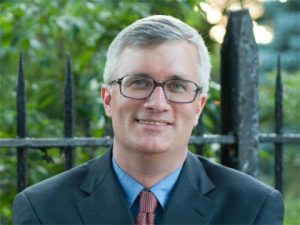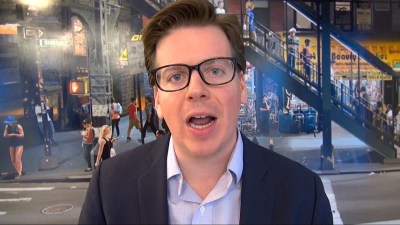Ghost of Congestion Pricing Lingers at RPA’s 2010 Regional Assembly
Even when there’s no breaking news at the RPA’s regional assembly, the annual get-together at the Waldorf Astoria is a good time to gauge the collective mood of the people who run the region’s transportation systems and think about planning for New York City’s future. How often do you get the heads of the MTA, NYCDOT, and the Port Authority all in the same room?
At the last three regional assemblies, funding our transit system with congestion pricing or bridge tolls seemed within reach, to varying degrees. (After the State Assembly killed congestion pricing in 2008, the zeitgeist was still kind of optimistic, because the insiders knew that road pricing would be revived soon.)
This year, the impending transit cuts in New York and New Jersey cast a bit of a pall on the proceedings. At times, the atmosphere felt tinged with foreboding, like when Lt. Governor Richard Ravitch told the crowd, "It’s hard to imagine what life will be like if we don’t make the investments in infrastructure that we have historically made."
The official theme of the event was "innovation," often encapsulated as "doing more with less" by speakers coping with shrinking budgets.
One of the more notable exchanges came at a panel on technology and transportation, when New York City Transit chief Tom Prendergast noted that the financial battering his agency has absorbed is "forcing us to do things we’ve never done before." One example: the MTA’s new open data policy.
Prendergast didn’t share much in the way of specifics, but he did hint that the MTA hopes to make transit arrival info accessible to riders before adding countdown clocks at every station and bus stop. "We’re looking at simple and innovative ways of getting that information up to people
on the street," he said.
Countdown clocks are the most expensive component of a real-time transit information system, said Chris Dempsey of the Massachusetts Executive Office of Transportation, and they take the most time to implement. You can get schedules and arrival times to passengers much more quickly and cheaply — through mobile devices — by opening up transit data to developers and letting them do the work.
Prendergast agreed that the MTA shouldn’t be trying to create a wholly proprietary system to distribute its transit information. "[MTA Chair] Jay Walder wants to reach out to the people with the core competency to run with this," he said. "You have to get past the issue of ownership at the agency level."
As for big, regionally transformative ideas, congestion pricing and the failure to enact it were still very much on people’s minds today. Port Authority chair Chris Ward told the morning crowd that "letting politicians demagogue on congestion pricing has been terrible for New York. The most important thing we can do for working class New Yorkers is to keep those subways running."
Later in the day, White House urban affairs director Adolfo Carrion got a big hand when he mentioned congestion pricing about 29 minutes into a 30-minute speech. The former Bronx Borough President and rumored 2013 mayoral contender said the Obama administration’s vision for "metro innovation" in New York includes "traffic congestion mitigation strategies and new, more innovative transportation options, including bicycles, ferries, and even maybe, dare I say, congestion pricing."

